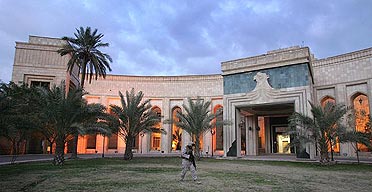Abe’s Address to US Congress: Things Said and Unsaid
The prime minister emphasized the significance of the new Guidelines for Japan-U.S. Defense Cooperation that strengthen the collaborative relationship between the Japan self-defense forces and the U.S. armed forces, claiming that it is for that purpose that he has been engaged with drafting laws that deal with the security treaty. The content of such bills could only be described as Constitution- and security treaty-flouting maneuvers to expand the integration of the American and Japanese militaries on a global scale.
These national security-related bills have yet to be submitted to the National Diet. Yet, in spite of this, the prime minister promised not once, but twice, in his speech to establish these new laws by this summer. We can't afford to abide by such a contemptuous attitude toward the importance of domestic debate.
Another point of contention lies in statements involving historical awareness. While expressing “feelings of deep remorse over the war,” Prime Minister Abe stated: “Our actions brought suffering to the peoples in Asian countries. We must not avert our eyes from that.” In addition, after alluding to the World War II memorial in Washington and referencing the many American soldiers who died in encounters like Pearl Harbor, he claimed, “With deep repentance in my heart, I stood in silent prayer for some time.” It seems like the prime minister's goal was to deceive the U.S. Congress and try to counteract the perception of himself as a "historical revisionist."
Unfortunately, there was no such explicit apology for the people of Asia, who suffered far worse under invasion and colonial rule. Once again, there was no comment whatsoever on the comfort women issue, a matter that was alluded to at the summit meeting with President Obama. In response, the Korean Ministry of Foreign Affairs issued a statement that the address was “deeply regrettable,” and a press bureau of the Chinese Ministry of Foreign Affairs also announced its dissatisfaction. Criticism even came from members of the U.S. Congress.
In the talk the prime minister will give this summer for the 70th anniversary of the end of World War II, it seems like "apology" and "invasion" are words he really has no interest in using. But for someone willing to say something like “we must not avert our eyes,” it seems like a requirement that this person be willing to look directly at the historical record with humility.
After the summit meeting and the speech to Congress, the Abe administration's inclination toward the U.S. has become even clearer. If the U.S.-Japan alliance is the standard by which we evaluate foreign affairs and national security, keeping an eye on the danger that compliance with the U.S. will bring is a necessity as well.

